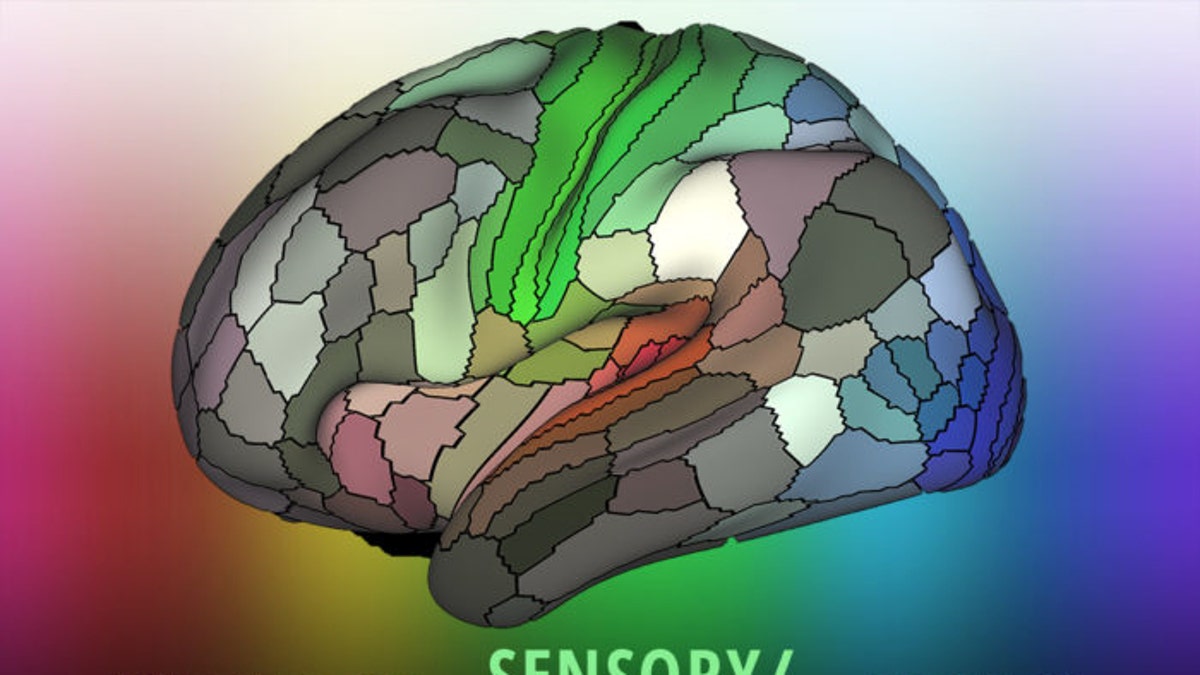
(Image: Matthew Glasser/Eric Young)
It's not quite the leap from an 18th-century atlas to Google Maps, but it's close. The Verge reports scientists from Washington University in St. Louis have created a new map of the human brain that includes 97 areas never before identified.
They published their findings Wednesday in Nature. A professor at Yale calls the new map—which Wired says "sort of looks like a page from an adult coloring book"—a "huge leap in neuroscience." The map gives new detail to the cerebral cortex, the outer layer of the brain responsible for motion, senses, emotions, and problem solving.
Scientists hope it will help clarify how different parts of the brain impact human behavior, Popular Science reports. For example, researchers could use the map to find what areas are different between the brains of people with and without learning disabilities.
Related:
Scientists created the new map by combining three different imaging techniques used on the brains of 210 young adults. "No one's done this across the whole human brain," the study's author, Matt Glasser, tells Wired.
The result is a map of 180 cortical areas in each of the brain's hemispheres—more than half of them completely new. In fact, they're not even sure what some of them do.
For example, one cortical area is activated by relaxing but deactivated by math problems for some reason. While the new map doubles the amount of mapped areas in the brain, the scientists behind it think further research will reveal even more.
(Scientists were wowed by their first look at a brain on LSD.)
This article originally appeared on Newser: Scientists Map 97 New Areas of the Human Brain




















